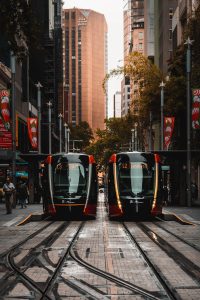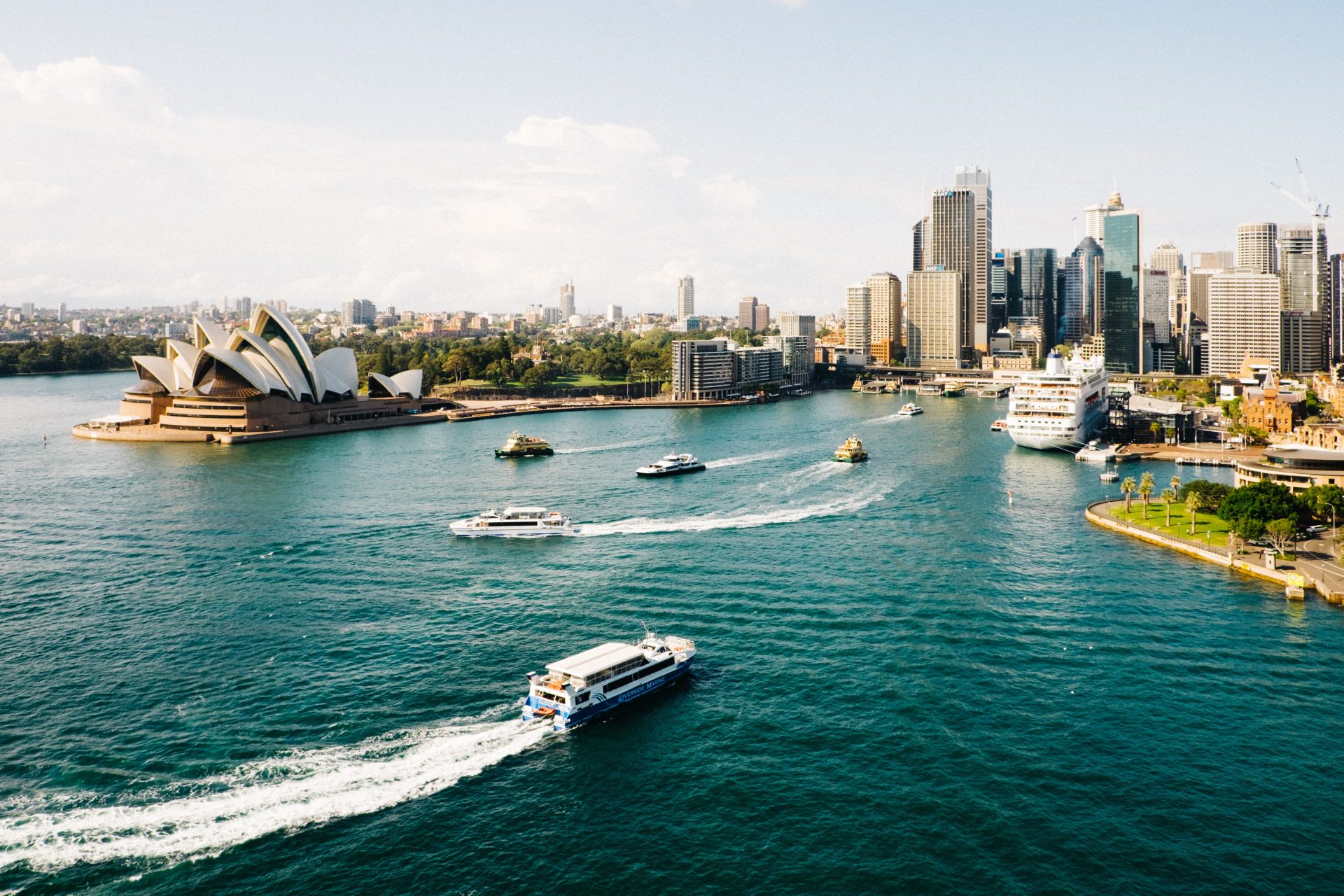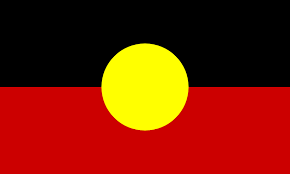 Words by Matilda Finn & Gordon Hunter Meredith
Words by Matilda Finn & Gordon Hunter Meredith
Analysis by Jeremy Phillips-Yelland
It was touted as the tightest election in over a decade.
Instead, the Coalition, led by Dominic Perrottet and promising to keep NSW moving, resoundingly failed in its pursuit of a fourth term of government. Under Chris Minns, Labor will likely form minority government with an extended crossbench, meaning his party now holds power in every state and territory on the mainland.
Though there was no “teal wave” or “greenslide”, the result reflects the trends we saw at last year’s federal election.
A new regime brings new priorities in several policy areas. Below, we outline what to expect in the next four years under Premier Minns, and how your organisation can capitalise.
Health + Mental Health
 If your organisation works in mental health or alcohol and other drugs (AOD), you’ll want to be involved in Labor’s drug summit, which will bring together health and medical experts, police, drug user organisations, families, and other stakeholders to find a new, positive approach to drug policy in NSW.
If your organisation works in mental health or alcohol and other drugs (AOD), you’ll want to be involved in Labor’s drug summit, which will bring together health and medical experts, police, drug user organisations, families, and other stakeholders to find a new, positive approach to drug policy in NSW.
The summit will play a critical role in shaping the state’s drug policy for the next four years, so securing a seat at the table for your organisation should be a priority.
Minns has made a minimum staffing level commitment for public hospitals, stopping short of nurse-to-patient ratios, but promising to recruit an additional 1200 health professionals.
The safe staffing proposal has been endorsed as a starting point by Shaye Candish, Secretary of the Nurses and Midwives Association, who believes more needs to be done to combat severe nurse shortages.
Labor has also promised to abolish the wages cap, which Minns says has placed a handbrake on productivity for over a decade. Considering the wages of nurses, paramedics and all frontline health workers have been frozen for 12 years, Minns is expected to come under pressure from union leaders to make good on his commitment if he wants to avoid a repeat of the protests we saw in the lead-up to the election.
Healthcare students will also benefit from $76 million in health subsidies. By helping partially fund university degrees, Labor hopes to attract staff and retain talent in the NSW public health system.
Finally, Labor will hire an additional 500 paramedics in rural and regional areas across the state, and build two new hospitals – one in the Badgerys Creek area near Western Sydney Airport, and the other in Rouse Hill in Sydney’s north-west.
Education
Education providers should keenly watch the government’s plan to slash the administrative burden on teachers, beginning with a line-by-line audit of teachers’ administrative workloads.
Along with removing redundant tasks and improving administrative staffing levels, the government will be looking to partner with industry to find innovative solutions.
NSW parents can also expect an overhaul of their education options.
 Labor has promised to build 100 new public preschools and retrofit under-utilised schools to cater to young students, and will also establish a co-ed school strategy to provide more co-education options for public schools.
Labor has promised to build 100 new public preschools and retrofit under-utilised schools to cater to young students, and will also establish a co-ed school strategy to provide more co-education options for public schools.
10,000 temporary teachers will be given permanent roles to help stem a 2,000-teacher shortage facing primary and high schools.
Labor will enforce a ban on mobile phones in public schools, and restrict smartwatches, tablets, and headphones to combat cyberbullying and improve social development.
Skills
Labor looks determined to develop the state’s workforce of tomorrow, making big investments in skills and training.
The Minns government will guarantee a minimum of 70 per cent of total skills funding will go to TAFE. Labor will also establish TAFE Domestic Manufacturing Centres of Excellence to help rebuild TAFE and NSW’s domestic manufacturing capabilities.
Labor has also committed $93.7 million to hire an additional 1,000 apprentices and trainees by 2026 to tackle skills shortages and get more young people into work.
Energy
 Following in Victoria’s footsteps, Minns has promised to end a “decade of failed privatisation” in NSW, something that was decisive factor in his election win.
Following in Victoria’s footsteps, Minns has promised to end a “decade of failed privatisation” in NSW, something that was decisive factor in his election win.
Labor has vowed to create a state-owned Energy Security Corporation that will seek to accelerate investment in renewable energy assets. The corporation will partner with industry to deliver on their energy projects.
Labor will also build community batteries across the state, after it was revealed that NSW has the lowest rate of household solar use out of any state, sitting at 26.6 per cent.
The energy and skills sectors will both welcome Labor’s $25 million commitment to establish a Hydrogen Centre of Excellence in partnership with the Plumbing Industry Climate Action Centre. The centre will help prepare the plumbing industry to meet demand for jobs in the growing hydrogen sector.
Infrastructure
 Minns successfully appealed to Western Sydney voters with big announcements for transport, including a pledge to cap the weekly toll bill for Sydney motorists at $60 from January 1, 2024.
Minns successfully appealed to Western Sydney voters with big announcements for transport, including a pledge to cap the weekly toll bill for Sydney motorists at $60 from January 1, 2024.
He also unveiled a plan to build Western Sydney’s transport links by working with working with the federal government to expand the existing business case for Sydney Metro, and has pledged to start stage two works on the Parramatta Light Rail within his first term.
Other key policies included a plan to transition major toll roads back into public hands to return billions of dollars to the state’s coffers, the prioritisation of local manufacturing by increasing tender weightings, and the establishment of the NSW Jobs First Commission.
Labor will seek to transition Sydney’s major toll roads back into public hands, which is set to return billions of dollars to the state government, to be returned to the public through investment in healthcare, education, public transport and roads.
Social and Legal Reform
 Earlier this year, the Coalition proposed to make all 90,000 poker machines in NSW cashless by 2028, requiring people to upload money to a gaming card.
Earlier this year, the Coalition proposed to make all 90,000 poker machines in NSW cashless by 2028, requiring people to upload money to a gaming card.
Labor stopped short of supporting the proposal in full, citing a lack of research on the economic impacts on pubs and clubs.
Instead, Minns has committed to a trial of the cashless gaming technology on 500 machines over 12 months. The trial will be overseen by an independent panel made up of law enforcement, health professionals and gambling experts.
This policy division was a significant factor in the election and may have been the difference between a majority and minority government for Labor.
Against the backdrop of the Star Casino trial in October last year, and Unions NSW secretary Mark Morey clashing with Labor over major gambling reform, Minns may need to take a stronger stance on gambling over the coming years to preserve his party’s social welfare reputation.
If the so-called “pokies state” can introduce gambling reforms, it may present a blueprint for other jurisdictions.
What does a new Labor NSW Government mean for you?
How will a potential minority government affect policy deliberations?
Several key independents – Joe McGirr in Wagga Wagga, Greg Piper in Lake Macquarie and Alex Greenwich in Sydney – have indicated they will work with Labor to ensure supply.
Interestingly, the same trio worked with Perrottet’s government to provide supply when it became necessary.
They form a part of a crossbench of 11, which also includes three Greens MPs, and will play a key role in negotiating legislation. It seems likely at least two crossbench votes will be needed to pass legislation.
Alex Greenwich was a proactive figure in the last government, bringing progressive legislation to the table for voluntary assisted dying, and to decriminalise abortion.
It seems likely he’ll turn his mind to gambling and drug law reform once the dust settles on the weekend’s ballot papers. Given the new state of play in parliament, his influence is likely to diminish over time.
 How can your organisation align its priorities with the new government?
How can your organisation align its priorities with the new government?
The new government will be flooded with meeting requests, ministerial attention will be sparse, and the focus will be on doing what has been promised.
Given Labor took a comprehensive set of policies to this election, initial funding commitments for its flagship policies will be the headline items when budget night arrives in mid-June.
That means any new “asks” submitted in the interim will not progress very far, unless they fit within the scope of an election promise.
The best approach is to work out where your priorities align with the government’s election platform, and then position your organisation as a preferred partner.
In turn, this should help to position your organisation as trusted advisor, provide you with scope to shape policy in future election cycles, and help bring your future budget bids to the top of the pile.
Given the members of Minns’ front bench all have ministerial experience, the public service will likely play a significant role in the next four years.
Consider how you can consult with officials about your ideas. Looking to co-design a proposition where possible can help to ensure a soft landing once it reaches a ministerial office.
A fresh start means fresh opportunities at all levels of government
If your organisation has stakeholders in both the federal and state spheres, you can set up for the decade to come by capitalising on Labor’s arrival at Macquarie Street, and their ongoing presence at the Lodge.
Look for opportunities to guide the conversation, and to capitalise on having like-minded state and federal members at the table. If your project benefits Labor’s vision at both levels, guiding financial and in kind co-investment can provide enormous scope for once-in-a-generation commitments.
Where to next?
With so many elections in the past couple of years, there’s a big pause before Queensland votes in October 2024.
In the meantime, our political attention will turn to the upcoming federal budget in May, and later in year, to the Voice referendum.
If you’re interested in discussing the insights in this blog, don’t hesitate to reach out!

 How can your organisation align its priorities with the new government?
How can your organisation align its priorities with the new government?
